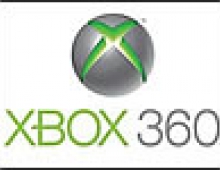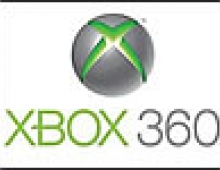
Xbox store seen opening new gaming revenue streams
When Microsoft Corp. releases the new version of its Xbox video game console -- presumably this year -- it plans to include a storefront that will offer "microtransactions."
The idea is that everyone wins: players with disposable income can spend a few cents here and there to enhance their gameplay in most any way they like, and publishers get a way to create a continuing revenue stream.
"Not only do you have to sweep away the distinction between virtual and real, you have to stop looking at video games as a toy and start looking at them as an entertainment service," said Edward Castronova, an associate professor at Indiana University who studies video game economics and is the author of the forthcoming book "Synthetic Worlds."
Microtransactions are so named because the purchases are generally a few cents or a dollar or two, often too small to be made by a credit card. That is where intermediaries, like the proposed Xbox service, come in to play.
"Generally if you do anything less than $5 you end up eating up the bulk of that $5 in transaction fees," said Cam Ferroni, general manager of Microsoft's Xbox Live online gaming service. "At the heart of it'll be a points-like system where you buy points and then use those points to make purchases."
Game publishers will have to cooperate by building access to a common storefront into their software, and some purists may argue that such trade creates an unfair playing field.
"In a multiplayer game there's a problem because if I choose to wreck the fantasy by buying my way around stuff, I don't just wreck my fantasy, I wreck others," Castronova said.
But Microsoft executives suggest those who do not take part will hear from unhappy fans.
"If you don't believe in the self-expression thing, so be it. Let's let it play out in the market," said J Allard, a Microsoft corporate vice president who has a key role in building the services in the next version of Xbox, in an interview at the recent Game Developer's Conference.
Analysts say the money is good -- perhaps too good to pass up, whether a publisher likes the concept or not.
"We believe that an online marketplace will provide varying high-margin incremental revenue opportunities for all of the major video game publishers with the Xbox 2 over the next five years," American Technology Research analyst P.J. McNealy said in a recent note.
Some publishers have estimated the potential for an additional $5 million in revenue per game by offering an extra level to an already released title. That potentially could be structured as a microtransaction.
That plan could be a drop in the bucket, though. Ferroni said it was conceivable that someday, the Xbox marketplace would let users trade and sell among themselves.
That paradigm already exists for PC games, which often allow for trading of virtual items. Castronova estimates that players pay between $100 million and $800 million in cash to buy such items on trading and auction sites like eBay.
"What they're saying to developers is if you don't design this into the game the fan site community, these external people, will capture this money stream," Castronova said.
"Not only do you have to sweep away the distinction between virtual and real, you have to stop looking at video games as a toy and start looking at them as an entertainment service," said Edward Castronova, an associate professor at Indiana University who studies video game economics and is the author of the forthcoming book "Synthetic Worlds."
Microtransactions are so named because the purchases are generally a few cents or a dollar or two, often too small to be made by a credit card. That is where intermediaries, like the proposed Xbox service, come in to play.
"Generally if you do anything less than $5 you end up eating up the bulk of that $5 in transaction fees," said Cam Ferroni, general manager of Microsoft's Xbox Live online gaming service. "At the heart of it'll be a points-like system where you buy points and then use those points to make purchases."
Game publishers will have to cooperate by building access to a common storefront into their software, and some purists may argue that such trade creates an unfair playing field.
"In a multiplayer game there's a problem because if I choose to wreck the fantasy by buying my way around stuff, I don't just wreck my fantasy, I wreck others," Castronova said.
But Microsoft executives suggest those who do not take part will hear from unhappy fans.
"If you don't believe in the self-expression thing, so be it. Let's let it play out in the market," said J Allard, a Microsoft corporate vice president who has a key role in building the services in the next version of Xbox, in an interview at the recent Game Developer's Conference.
Analysts say the money is good -- perhaps too good to pass up, whether a publisher likes the concept or not.
"We believe that an online marketplace will provide varying high-margin incremental revenue opportunities for all of the major video game publishers with the Xbox 2 over the next five years," American Technology Research analyst P.J. McNealy said in a recent note.
Some publishers have estimated the potential for an additional $5 million in revenue per game by offering an extra level to an already released title. That potentially could be structured as a microtransaction.
That plan could be a drop in the bucket, though. Ferroni said it was conceivable that someday, the Xbox marketplace would let users trade and sell among themselves.
That paradigm already exists for PC games, which often allow for trading of virtual items. Castronova estimates that players pay between $100 million and $800 million in cash to buy such items on trading and auction sites like eBay.
"What they're saying to developers is if you don't design this into the game the fan site community, these external people, will capture this money stream," Castronova said.





















